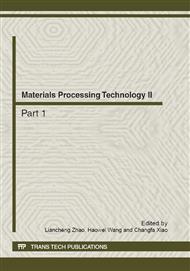p.2972
p.2978
p.2982
p.2986
p.2990
p.2995
p.2999
p.3003
p.3008
Study on the Organization Model for the Design Process Modular of Complex Mechanical Product
Abstract:
In order to provide knowledge service more efficiently for complex mechanical product design, a knowledge organization model for complex mechanical product design knowledge based on the process modular approach was proposed. First, a general form, the knowledge instance, would be used to represent all forms of the knowledge for complex mechanical product design; then, based on the contents and features of the knowledge instances and the semantic relations in the domain ontology, the special collections of the knowledge instances which have related features would be composed to knowledge modules, and knowledge modules would be organized as a DAG(directed acyclic graph). The complex mechanical product design knowledge could be efficiently and completely queried based-on semantic according to the logical relationships expressed in the DAG.
Info:
Periodical:
Pages:
2990-2994
Citation:
Online since:
June 2012
Authors:
Price:
Сopyright:
© 2012 Trans Tech Publications Ltd. All Rights Reserved
Share:
Citation:


